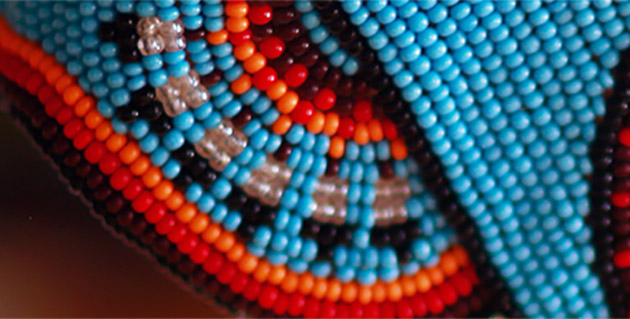Decades of unchecked resource development and government policy failures have strained the social fabric of communities in northeast British Columbia (BC) and have put the lives and safety of Indigenous women and girls at great risk, Amnesty International said in a new report.
The report, Out of Sight, Out of Mind, demonstrates how resource development in northeast BC has eroded the land base that provides the foundation for First Nations and Métis health and wellness in the region, while influxes of transient workers have driven up local prices for essentials such as housing. Increased rates of violent crime and diminished access to social services have placed Indigenous women and girls at increased risk of harm, while denying them the protections and support they need. Northeast BC has one of the highest violent crime rates in Canada.
“Unbridled resource development in this region is creating an environment where Indigenous women and girls are confronted with levels of extreme violence that are shocking and pervasive, even when compared to the already-deplorable level of marginalization this group confronts in Canadian society more broadly,” said Erika Guevara Rosas, Americas Regional Director for Amnesty International. “The fact that these deeply troubling realities are not being addressed and prioritized when policy makers take decisions on resource development is a grave and troubling failure on Canada’s part.”
For more than 30 years, government ministries, independent researchers, and Indigenous peoples’ organizations have highlighted many of the same concerns outlined in Amnesty International’s report. Despite these warnings, federal and provincial authorities have failed to take sufficient action to mitigate the impact of resource development on the rights of Indigenous women and girls.
“Given all of these previous reports, Amnesty International’s findings should not be a surprise to authorities in Canada. It is stunning that the federal and provincial governments have still failed to ensure human rights are properly protected before development projects are approved,” said Alex Neve, Secretary-General of Amnesty International Canada (English).
Among the concerns documented in Amnesty International’s report are:
- Well-documented patterns of binge-drinking and drug abuse among some resource sector workers in northeast BC which contribute to the high rate of violent crime.
- Economic insecurity created by greatly elevated local prices for essentials like housing, and increased competition for services like childcare, makes it much harder for women without access to high wages to leave violent relationships.
- Extensive loss of land has made it harder for Indigenous families to maintain traditions like hunting and gathering plant medicines that are indispensable to the health and wellness of their communities.
- Underfunded social services agencies are in a state of crisis and cannot meet the urgent needs of the community.
Northeast BC is home to some of the most intensive resource development anywhere in Canada, including thousands of oil and gas wells and a third major hydro-electric project, the Site C dam, is now under construction on the Peace River. Although a global downturn in the energy sector has slowed the pace of new development in the northeast, construction is proceeding on the Site C dam and the provincial government continues to predict future growth in the production and export of liquefied natural gas (LNG).
“Some resource projects, like the Site C dam, simply shouldn’t proceed because the harm that is being done to Indigenous peoples cannot be justified,” said Alex Neve. “For all others, the decision-making process needs to be reformed to ensure that the potential risks to the most marginalized are identified and effective mitigation strategies put in place.”
“When Canada provides international assistance through development projects in other countries, the federal government requires a gender-impact assessment. Resource development projects within Canada should not be held to a lower standard,” said Erika Guevara-Rosas.
The new report makes 30 recommendations to all levels of government, law enforcement and private industry, including:
- Reform of the decision-making process around resource development to ensure a greater role for Indigenous peoples and introduction of requirements to examine specific impacts on women and girls;
- A regional review of the cumulative social impacts already experienced as a result of intensive resource development in the northeast.
- A regional assessment of social service and infrastructure needs in the northeast.
- An overall increase in social service funding in BC, with specific investment in northeast BC.
The federal government recently launched a National Inquiry into Missing and Murdered Indigenous Women and Girls. Amnesty is urging that the inquiry examine the role of the current model of resource development in contributing to the risks faced by Indigenous women and girls in northeast BC and across Canada.
“If these threats to the safety and wellness of Indigenous women and girls are not acknowledged and addressed, the work being undertaken by Canada’s National Inquiry will be undermined,” said Alex Neve.
Amnesty International’s research in northeast BC builds on the organization’s longstanding Stolen Sisters campaign to end violence against Indigenous women and girls in Canada, and on a larger body of work to ensure that the rights of all Indigenous peoples in Canada are respected, protected and fulfilled.
Watch the videos here.



Be the first to comment on "Rampant resource development puts Indigenous women and girls at higher risk of violence"